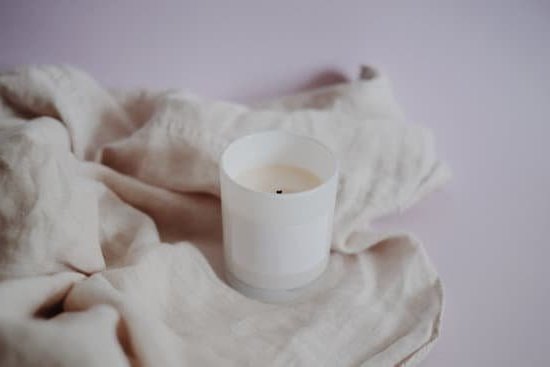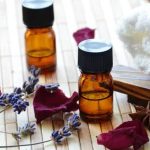Aromatherapy, the practice of using essential oils and aromatic plant compounds for holistic healing and wellness, has gained popularity in recent years. While it is often lauded for its potential health benefits, many question whether aromatherapy is harmful if not used properly. In this article, we delve into the world of aromatherapy to explore its origins, science, benefits, risks, and safety precautions.
Aromatherapy dates back thousands of years and has been used in various cultures for its therapeutic properties. It involves the use of essential oils extracted from plants to promote physical, emotional, and mental well-being. These oils can be inhaled, applied topically, or used in diffusers to create a calming or invigorating atmosphere.
The field of aromatherapy is supported by scientific research that explores the impact of essential oils on the body and mind. Studies have shown that certain essential oils have antibacterial, anti-inflammatory, and stress-relieving properties. However, it is essential to understand the potential risks and side effects associated with aromatherapy when not used correctly.
What Is Aromatherapy
Aromatherapy is a holistic healing treatment that uses natural plant extracts, known as essential oils, to promote overall well-being. These essential oils are extracted from various plants and can be used in a variety of ways, including inhalation, topical application, and even ingestion in some cases. The practice of aromatherapy dates back thousands of years and has been used by many cultures around the world for its therapeutic properties.
Essential oils are highly concentrated extracts derived from different parts of plants such as flowers, leaves, stems, roots, or fruits through methods like distillation or cold pressing. Each essential oil contains its own unique blend of active compounds that contribute to its distinct aroma and therapeutic properties. When these essential oils are inhaled or absorbed through the skin during aromatherapy sessions, they can have a range of effects on the body and mind.
The principles behind aromatherapy revolve around the idea that certain scents can trigger specific responses in the brain, affecting mood, emotions, and even physical health. For example, lavender essential oil is commonly used in aromatherapy for its calming and relaxing effects on the nervous system, while peppermint essential oil is often used for its invigorating and stimulating properties. The practice of aromatherapy is often combined with other relaxation techniques like massage or meditation to enhance its benefits further.
The Science Behind Aromatherapy
Essential Oils and Their Chemical Components
Aromatherapy is based on the use of essential oils, which are highly concentrated plant extracts that capture the essence of the plant’s fragrance and properties. These essential oils are composed of various chemical components that are responsible for their therapeutic effects. For example, lavender essential oil contains linalool and linalyl acetate, which have calming and relaxing properties. Eucalyptus essential oil, on the other hand, contains eucalyptol, known for its decongestant and anti-inflammatory qualities.
How Aromatherapy Works on the Body
When inhaled or applied to the skin, essential oils are believed to interact with the body in several ways. The molecules from the oils can stimulate olfactory receptors in the nose, sending signals to the brain that can affect emotions and mood. Additionally, when absorbed through the skin, these compounds may enter the bloodstream and have a systemic effect on the body. For example, peppermint oil applied topically has been shown to reduce nausea and improve digestion.
Evidence-Based Research on Aromatherapy
While there is a wealth of anecdotal evidence supporting the benefits of aromatherapy, scientific research on its efficacy is still ongoing. Some studies have shown promising results in areas such as pain management, stress reduction, and improved sleep quality.
However, more well-designed clinical trials are needed to fully understand the mechanisms behind aromatherapy’s effects and to determine its effectiveness for different health conditions. Overall, while aromatherapy shows potential benefits for health and well-being, it is important to use caution and consult with a qualified practitioner before incorporating it into your daily routine.
Potential Benefits of Aromatherapy
Aromatherapy, when practiced safely and responsibly, can offer a range of potential benefits to individuals seeking natural remedies for various issues. One of the key advantages of aromatherapy is its ability to promote relaxation and reduce stress levels. Inhaling certain essential oils like lavender, chamomile, or rosemary can have a calming effect on the mind and body, helping individuals unwind after a long day or manage feelings of anxiety.
Moreover, aromatherapy is often used to improve sleep quality and alleviate insomnia. Essential oils such as lavender, peppermint, and cedarwood are known for their sedative properties, which can help create an optimal environment for restful sleep. Whether through diffusion in the bedroom or adding a few drops to a nighttime bath, incorporating these oils into a bedtime routine has been shown to promote better sleep patterns and overall well-being.
Furthermore, another significant benefit of aromatherapy is its potential to enhance mood and boost mental clarity. Scents like citrus fruits (such as lemon or orange) and peppermint are known for their uplifting qualities that can help improve focus and concentration. By diffusing these essential oils in workspaces or using them in personal care products, individuals may experience heightened cognitive function and increased productivity throughout the day.
| Potential Benefit | Associated Essential Oils |
|---|---|
| Promotes relaxation | Lavender, Chamomile, Rosemary |
| Improves sleep quality | Lavender, Peppermint, Cedarwood |
| Enhances mood and mental clarity | Citrus fruits (e.g. Lemon & Orange), Peppermint |
Common Essential Oils Used in Aromatherapy
Lavender Essential Oil
One of the most popular essential oils used in aromatherapy is lavender essential oil. Known for its calming and soothing properties, lavender oil is often used to promote relaxation and reduce stress. It is also believed to help with insomnia and improve sleep quality. Additionally, lavender oil is commonly used to alleviate headaches and migraines, as well as soothe minor skin irritations.
Peppermint Essential Oil
Another common essential oil utilized in aromatherapy is peppermint essential oil. Peppermint oil is known for its invigorating and energizing effects, making it a popular choice for boosting energy levels and improving focus and concentration. It is also commonly used to relieve nausea and aid in digestion. Some people find that inhaling peppermint oil can help alleviate symptoms of respiratory conditions like congestion or sinusitis.
Eucalyptus Essential Oil
Eucalyptus essential oil is often included in aromatherapy blends due to its refreshing, cleansing scent. This oil has decongestant properties that can help clear nasal passages and ease breathing difficulties. Eucalyptus oil is frequently used to relieve symptoms of colds, flu, and respiratory infections. Its cooling sensation can also provide relief from muscle aches and pains when used in massage oils or balms.
Overall, when using essential oils for aromatherapy purposes, it is important to choose high-quality oils from reputable sources to ensure their purity and potency. While these essential oils offer many benefits when used correctly, it’s essential to follow safety precautions to avoid potential risks or side effects. As with any form of therapy or treatment, moderation and proper knowledge are key to enjoying the benefits of aromatherapy without experiencing harm.
Safety Precautions and Guidelines for Aromatherapy
Aromatherapy has been practiced for centuries as a holistic healing approach that uses essential oils extracted from plants to promote physical and emotional well-being. While it offers potential therapeutic benefits, it is essential to practice caution and follow safety precautions when using aromatherapy to avoid any adverse effects. Here are some guidelines to ensure safe and effective use of aromatherapy:
- Always dilute essential oils with a carrier oil before applying them to the skin. Undiluted essential oils can cause skin irritation or allergic reactions.
- Perform a patch test before using any new essential oil topically by applying a small amount on your skin and waiting 24 hours to check for any adverse reactions.
- Avoid ingesting essential oils unless under the guidance of a qualified healthcare professional, as some oils can be toxic if consumed orally.
In addition, it is crucial to store essential oils properly in dark glass bottles away from direct sunlight and heat to maintain their potency and prevent degradation. Always keep essential oils out of reach of children and pets to prevent accidental ingestion. Proper storage will also help extend the shelf life of your essential oils.
When diffusing essential oils, make sure you have good ventilation in the room and do not diffuse continuously for an extended period as this may lead to overexposure. Also, be mindful of pets in the vicinity, as some animals may be sensitive or have adverse reactions to certain essential oils. Following these safety precautions will help you enjoy the benefits of aromatherapy without any harmful consequences.
Ultimately, while aromatherapy can offer numerous benefits, it is important to approach its practice with care and mindfulness. By understanding safety guidelines and taking necessary precautions, you can harness the power of nature’s aromatic essences safely and effectively in your wellness routine.
Potential Risks and Side Effects of Aromatherapy
Aromatherapy, the practice of using essential oils for therapeutic purposes, has gained popularity for its potential health benefits. However, it is essential to understand that just like any other form of treatment, there are potential risks and side effects associated with aromatherapy. While aromatherapy is generally considered safe when used properly, it is crucial to be aware of these risks to ensure a positive and safe experience.
Here are some potential risks and side effects to consider when using aromatherapy:
- Skin Irritation: Some essential oils can cause skin irritation or allergic reactions when applied directly to the skin without proper dilution. It is essential to perform a patch test before using any essential oil topically.
- Respiratory Issues: Inhaling certain essential oils can trigger respiratory problems in some individuals, especially those with asthma or other respiratory conditions. It is important to use caution and consult with a healthcare provider before using essential oils for inhalation.
- Interactions with Medications: Some essential oils may interact with certain medications, either enhancing or diminishing their effects. It is advisable to consult with a healthcare provider before incorporating aromatherapy into your treatment regimen if you are taking medications.
While these risks are real, they can generally be avoided by following safety guidelines and consulting with a qualified aromatherapist or healthcare provider before using essential oils. By being informed about the potential risks and side effects of aromatherapy and taking necessary precautions, you can enjoy the benefits of this practice while minimizing any potential harm.
Remember that everyone’s body reacts differently to substances, so it is crucial to pay attention to how you feel when using essential oils and adjust accordingly.
Myth Busting
Aromatherapy is a practice that involves using essential oils for therapeutic purposes, such as promoting relaxation, reducing stress, and improving overall well-being. However, there are several misconceptions and myths surrounding aromatherapy that need to be debunked. One common myth is that all essential oils are safe to use in any situation, which is not always the case. It is important to understand that essential oils are highly concentrated substances and should be used with caution.
Another misconception about aromatherapy is that it can cure serious medical conditions or replace traditional medicine. While aromatherapy can complement conventional treatments and provide relief from certain symptoms, it is not a substitute for professional medical care. It is crucial to consult with a healthcare provider before using aromatherapy as part of your treatment plan, especially if you have any underlying health conditions.
Additionally, some people believe that aromatherapy is only about pleasant scents and relaxation without any real therapeutic benefits. In reality, numerous studies have shown the potential benefits of aromatherapy for various conditions, including anxiety, insomnia, headaches, and more. The key is to use high-quality essential oils properly and follow safety guidelines to maximize the positive effects while minimizing the risks associated with improper use.
| Common Myths About Aromatherapy | Debunking the Misconception |
|---|---|
| All essential oils are safe for everyone | Essential oils are potent substances that can cause harm if used incorrectly or by certain individuals. |
| Aromatherapy can cure serious medical conditions | While it can provide symptom relief and support overall well-being, it should not replace medical treatment for serious ailments. |
| Aromatherapy is just about pleasant scents | Research has demonstrated the therapeutic benefits of aromatherapy for various health issues beyond relaxation. |
Conclusion
In conclusion, while aromatherapy offers a wide range of potential benefits, it is essential to approach the practice with caution and awareness. Understanding the balance of aromatherapy involves not only reaping its therapeutic rewards but also acknowledging the potential risks and side effects associated with improper use or overexposure. By following safety precautions and guidelines, individuals can experience the positive effects of essential oils without putting their health at risk.
It is crucial for users to educate themselves on the proper dilution ratios, application methods, and contraindications of each essential oil before incorporating them into their aromatherapy practice. Consulting with a qualified aromatherapist or healthcare professional can provide valuable insight and personalized recommendations based on individual needs and health conditions. This proactive approach can prevent adverse reactions and ensure a safe and enjoyable aromatherapy experience.
Ultimately, striking a balance in aromatherapy means finding harmony between harnessing the healing power of essential oils and respecting their potential potency. By maintaining a mindful and informed approach to aromatherapy practices, individuals can maximize the benefits while minimizing any potential harm. Remember that knowledge is key in navigating the world of aromatherapy safely and effectively.
Frequently Asked Questions
Are There Any Negative Effects to Aromatherapy?
Aromatherapy, when practiced safely and in moderation, typically does not have significant negative effects. However, some essential oils can cause skin irritation or allergic reactions in certain individuals, so it’s crucial to do a patch test before use.
Can Aromatherapy Be Toxic?
Yes, aromatherapy can be toxic if not used properly. Some essential oils are potent and could irritate the skin or mucous membranes if applied undiluted. Ingesting certain oils can also lead to poisoning, so always follow recommended dilution guidelines.
Is It Bad to Inhale Aromatherapy?
Inhaling aromatherapy is generally safe for most people and can have various benefits such as reducing stress and promoting relaxation. However, excessive inhalation of strong essential oils can cause headaches, nausea, or respiratory issues in some individuals. It’s important to use proper ventilation and follow guidelines for safe aromatherapy practices.

Are you looking for a natural way to improve your health and wellbeing?
If so, aromatherapy may be the answer for you.




